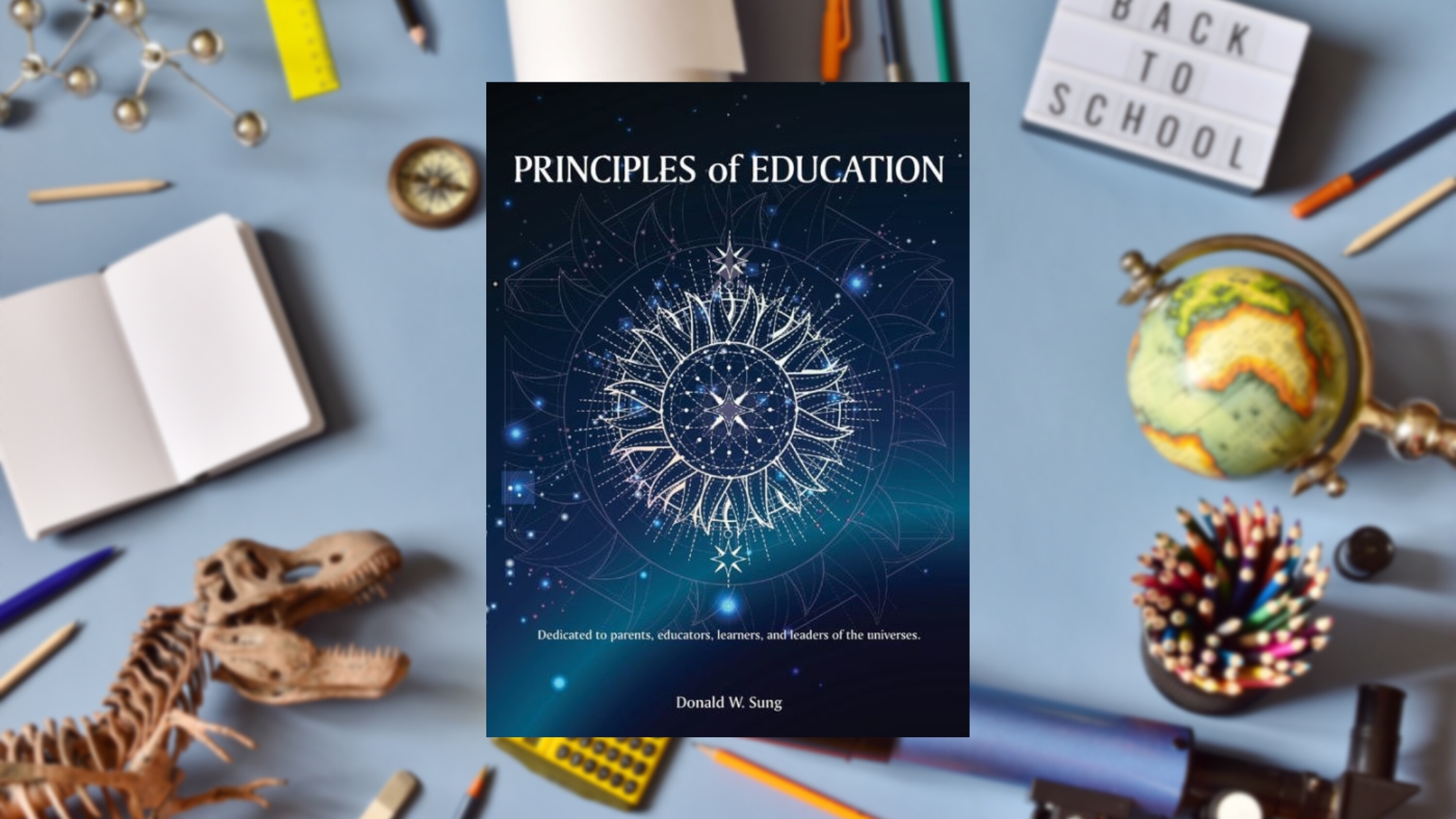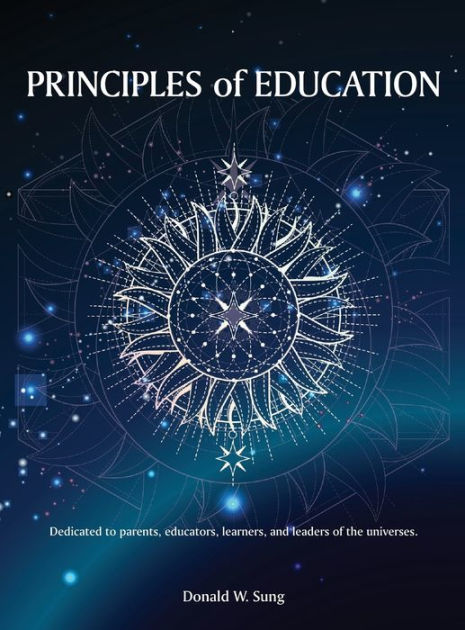
Principles of Education by Donald Sung
Childhood education, according to Donald Sung, is the foundation for people, families, society and the future of the world. Sung has addressed this belief in his scholarly work Principles of Education (Barnes & Noble Press), in which he defines and details 81 principles that parents, educators and learners need to consider to maximize a child’s learning.
Together, the principles make up a childhood educational theory that tackles a learner’s conditions, environment and educational processes.
The author, an attorney and CPA by trade, elaborated on his book and its concepts in this recent Q&A.
Q: Why did you write Principles of Education?
A: I appreciate the education and opportunities given to me by society. This is the best way for me to give back to society. I am a problem solver. It seems to me that the threat to mankind’s existence is growing greater along with the advancement in technology. No one has a better answer regarding how to solve this problem. I believe that childhood education is the best (if not the only) solution to the complicated situations in the future of the world.
Q: How would you describe the importance of childhood education in our society and for the future of the world?
A: Childhood education lays the foundation of all educations throughout the rest of one’s life. An improper or inadequate childhood education may cause difficulties in a person’s learning later, emotional and financial distress, family suffering and social problems. Like constructing a tall building, a rotten foundation will make a person unstable. The more power entrusted to an unstable person, the more danger it would bring to the future of the world. On the other hand, a good childhood education would lay the foundation for a beautiful new world. Childhood education is one of the top priorities for the future of the world.
Q: How have you identified and developed the 81 principles that make up your book?
A: Through my experience in teaching babies, toddlers, children, youngsters, adults, middle ages and senior persons, I learned the importance of teaching principles that may last throughout a person’s lifetime. Through my own education in science school, business school, law school, music school and education school, I learned the importance of teaching principles that can be applied across all disciplines. I collect the principles, which have been used to teach my own children, refine them to their finest forms, and make them readable to ordinary people so that my audience may benefit and contribute to the peace of the future world.
Q: Who is your target audience for this book?
A: Parents are my primary target. Furthermore, childhood education is ongoing 24 hours a day. Not only teachers and leaders will be involved, but also children will be involved. It is critically important that all teachings be conducted on a common ground, or with the same set of educational principles. Otherwise, the discrepancies in education may produce unpredictable, positive or negative, effects on the children. Childhood education is a teamwork among parents, learners, educators and leaders. This book provides a common ground for the team. All team members are my target audience.
Q: What do you see as some of the common mistakes people make today in educating their children?
A: One common mistake people make is the failure to recognize childhood education as a team effort. Some parents think their responsibilities end with finding a good teacher. Some people believe children can learn everything by themselves without proper guidance, etc.
Another common mistake is the stereotype of children and labeling some students as “good” or “bad” without understanding the state of the person at that moment. Another common mistake is that people often think education is a static system rather than a dynamic process. Instead of calling a student “bad,” ask: “how can the team contribute to a better education?”
Q: Do you see this book as a preventive tool to avoid mistakes or more as a proactive tool to set the stage for positive learning?
A: Both. The book is a proactive tool. It motivates people to teach positively with particular attention to the potential impacts of any unintended and unwarranted effects on the learners, particularly the babies. Indirectly, the learners avoid potential mistakes effortlessly. Conversely, when learners consume minimal energy with (minimal) mistakes, the learners would have more time and energy to follow through their positive teaching. Thus this tool provides the learners opportunities to excel in their positive learning, too.
Q: How would you suggest people use this book to get the most out of it?
A: Understand that each person in the team is in his or her own state (e.g., physical and emotional conditions) and that multiple principles may be applied to a particular team so that each team member knows which principles are more effective at that moment. With that in mind, the team may perform more effective education. The book is a system with 81 functions. The team is the driver of these functions. The more proper the team may apply these functions, the more benefits it will yield.
Q: What is the one overriding message you would like people to take away from reading this book?
A: Act in time. With the advancement in technology, it is easier for humans to destroy themselves in a rather short time. We must act in time to bring new thinking into childhood education so that the future generations may prosper with happy lives and avoid unwarranted perishment.
About Donald Sung:
Donald Sung is an attorney and C.P.A. Throughout his life, he has been questing and exploring common grounds for people and concluded that childhood education is the foundation for people, families, society, and the future of the world. He is very appreciative of the opportunities and educations offered by society. In this book he shares his principles of education as a giving back to society.

Publish Date: 10/25/2022
Genre: Education, Nonfiction
Author: Donald Sung
Page Count: 62 pages
Publisher: Barnes & Noble Press
ISBN: 9798823131148





